From Millennium Studios to tax credits: Everything to know about Shreveport's movie scene
When Hurricane Katrina wreaked havoc on New Orleans in August 2005, thousands of people fled their homes to find shelter in the northern areas of Louisiana, and the city's booming film industry came with them.
During that time, directly after Katrina, Shreveport and Bossier City film offices reported having $300 million in total filming budgets, that number drastically dropped to $70 million in 2010 once New Orleans was finally getting back up and running.
From 2005 - 2011, films like The Mist, Drive Angry, Battle Los Angeles, The Guardian and Mr. Brooks contributed to that increase in filming budgets and subsequently the $182 million earned in 2010.
But if films were successfully being made in Shreveport, why go back down south? The simple answer is New Orleans is a destination with a plethora of hotels, restaurants and things to do while talent and crew are off-set.
The Perks of Filming in Shreveport
While Shreveport's nightlife isn't as bustling as New Orleans, what it does have is less saturation and better hospitality. It also has fully operable sound stages in the studio formally known as Millennium, a downtown area perfect to recreate known cityscapes like L.A. and local film crews mean studios can save money rather than outsourcing those jobs.
"The fact that we learned that there was a film community, because you only think that New Orleans is kind of the base of everything," said film producer Atkin Korkis about filming his new project at the former Millennium Studios in Shreveport. "That's just where everyone goes and maybe Baton Rouge a bit, but once you get past that, the north of that, there isn't much going on. But we were very surprised to see that actually, there was a lot kind of going on."
Many locals thought that the studio space permanently closed down when the company Millennium Media decided to downsize considerably in 2016. While several news outlets stated that the studio was "going dark" it actually was still fully operational with a skeleton crew at its helm.
In February of 2022, previous mayor Adrian Perkins made the decision to have the city purchase the space with the hopes of bringing more workforce development in. While an animation and visual effects company was set to move into the building, the deal fell through, and the previous Millennium Studios has continued to operate by becoming a rental space for local and traveling filmmakers.
"You guys got these amazing stages, there's a lot of workers still out here, there's a lot of film crew still out here, there's actors and film people and there's all kinds of resources that you wouldn't have expected, but that's what actually incentivized us to come here," Korkis continued. "New Orleans nowadays is more saturated, so it feels a bit more like L.A. where it's just not exciting for a film to be coming down there, but in Shreveport, it feels great. There's people out here that are excited which makes us excited."
More Movie News: Check out the first trailer for the new 'Duck Dynasty' movie filmed in Shreveport
The old Millennium Studios offers two sound stages, a construction mill, an SFX mill, a world-class VFX studio and numerous production offices. In the upstairs portion, local actor Garret Kruithof hosts acting classes for anyone looking to increase their skills and he offers to tape auditions even if you're not a student at Northwood Acting Studio.
According to Kruithof, Shreveport doesn't have nearly as much red tape as the larger cities when it comes to filming. Smaller cities have bigger ease of use meaning that closing main streets and businesses isn't as difficult which is attractive to producers.
The Economic Impact of Becoming a Film Hub
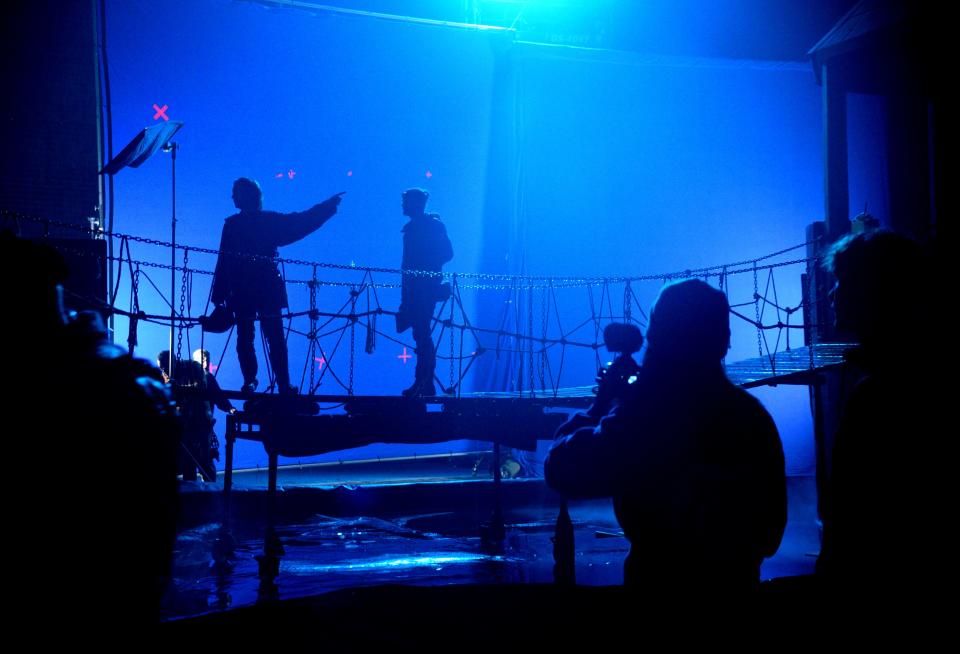
According to the Motion Picture Association, the film industry pays out $21 billion per year to more than 260,000 businesses in cities and small towns across the country. As much as $250,000 per day can be given to the community when a film is shot on location and it can boost tourism.
Shreveport's Antiques And More reaped those benefits in the summer of 2022 with over 200 items purchased at one time.
The comically long receipt was filled with kitschy vintage items from the 1960s and 70s and purchased by The Blind set designer Kassandra DeAngelis. The film was shot entirely in Shreveport in 2022 and follows the head of the Duck Dynasty clan Phil Robertson through his trials and tribulations in his youth.
Antiques are often used to create an authentic look that reflects the time periods of the film and make it come alive on screen.
DeAngelis and her assistant, Chase Wilson, shopped well over 50 local and nearby stores to create the set for The Blind. Every detail matters to DeAngelis, "I dress every draw. I make mail with characters' names on it so the actors can see it. Details can transport you; those details are so beautiful on set and in life."
All those details added up quickly at Kings which ended up being the largest sale, not cash-wise, but in the number of items according to shop runner Summer Durrett.
"We are always thrilled when we have movie crews in shopping. We have a wide range of items, we really can help provide our movie customers with almost everything they need!", said Kings Antiques co-owner Lauren Barre'.
This enthusiasm to have a film shooting locally and wanting to help out is one of the reasons DeAngelis loved working in Shreveport.
Every movie has a different budget. DeAngelis has to ask for what she needs, or as she says, 'fight for it'. She consciously chooses to spend her budget locally in the places they are filming, "You can change neighborhoods with the money I fight for."
In Louisiana alone, the motion picture and television industry is directly responsible for over 8,500 jobs and more than $650 million in wages. For northern Louisiana, the big issue comes in the form of making sure there are enough workers that are qualified to help with incoming projects.
"It's really this kind of chicken in the egg scenario," said actor Garret Kruithof. "We need a crew base back, but we need movies and tv series to come to have a crew base. We need crew and we can't get crew without movies, and we can't get movies without crews."
So, what's the solution?
"It's kind of playing that balancing act to where if we can entice enough film to come in and entice enough of the crew people to come work back as locals in Shreveport so that we can build that base back up so we can continue to attract movies and really, a tv series would be ideal," explained Kruithof.
In addition to building a qualified crew base here, getting local government on board with supporting things like street closures and bringing people in to work on the city itself so it has appeal to location scouts.
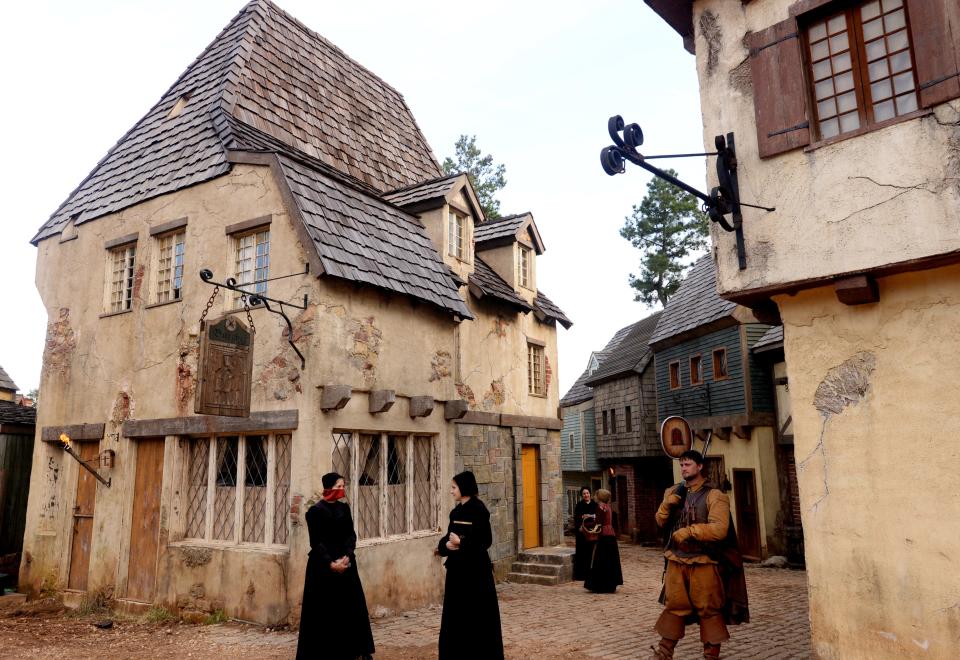
But it's not just government officials that need to be on board with film crews causing disturbances in everyday life.
"You need support from the local community, you want them to buy into the business as much and realize that it's great for the economy," continued Kruithof. "They pour so much money into the local infrastructure so everything that they buy, you know, is being bought locally and so it's great for the community."
What are the Film Tax Credits and How Have they Changed over the Years?
Film tax credits are an important factor when it comes to location scouts choosing the places for production to come shoot for their film and tv shows. Not only are they looking for a place that fits the look the director envisions, but they're looking for it to financially pay off in the long run.
Here's a breakdown of the film tax incentives for the state according to the Louisiana Entertainment website:
10% increase for Louisiana screenplay productions.
5% increase if outside of the New Orleans Metro Statistical Area.
$50,000 minimum in-state expenditure requirement for Louisiana screenplay productions.
$30,000 minimum in-state expenditure requirement on all other eligible productions.
Tax credits may be used to offset personal or corporate income tax liability in Louisiana.
The maximum amount of credits that can be issued is 4150 million per fiscal year. The maximum amount of credits that can be claimed is $180 million per fiscal year.
Tax credits may be transferred back to the state for 90% of face value - which requires a 2% transfer fee which results in an 88% net.
The tax incentives have undergone numerous changes since its inception in 2002 because lawmakers say they want a program that is more responsive and responsible to the taxpayers.
More in Louisiana Movies: Adam Driver's new movie, '65' releases this week. It was shot in this iconic Louisiana location
Much like people thinking Millennium Studios completely shut down, a lot of people thought the film tax incentives disappeared in 2016.
What actually happened in 2015 was the Louisiana legislature instituted a claims cap of $180 million and suspended the buyback for one year, creating hesitancy in the tax credit market.
A state buyback is where the state will buy back a credit at that time at 85 cents on the dollar. During the buyback suspension in 2016, a massive bubble built up because no one was claiming the credits on their returns, therefore no money was transferred back to the state which created an unstable market.
Even though there was a significant dip in productions being filmed here, it never fully disappeared. When Governor Edwards was elected in 2016, he asked the Louisiana Entertainment office to create a film incentive plan that would create opportunities for long-term sustainability.
Included in that plan were an insurance cap, better opportunities for local filmmakers and the ability to create other opportunities for education and workforce development. Additionally, Edwards wanted to create more opportunities for greater statewide impact. So, productions willing to shoot outside of New Orleans get an additional 5% on top of the base amount of 25%.
"In 2017, the statute changed to provide more opportunities for local filmmakers, local education and workforce development initiatives and through our Entertainment Development Fund, we've made nearly $5 million in investments throughout the entire state," said Louisiana Entertainment Executive Director Chris Stelly.
On Monday, April 24 House Bill 562 advanced and if it passes, it will extend the state's $180 million film tax credit program for a decade. A similar Senate bill in 2021 failed in the full House and was criticized for the extension of the credits stating the program misplaces Louisiana's priorities.
This time around, Louisiana Film and Entertainment Association President Trey Burvant explained that the industry spends around $900 million annually in the state with $350 million of that going directly to wages for workers.
"The film credits in Louisiana are what finally convinced me to move my film production company from Austin to Shreveport," said Prize Foundation Executive Director and Founder Gregory Kallenberg. "The credits are also a huge attraction to the filmmakers who come to Louisiana to make films for the Film Prize. All that said, to me, the credits are essential to bolstering and growing the creative economy in our state and giving our state's women and men an opportunity to work in an incredible, vibrant industry and prosper from it."
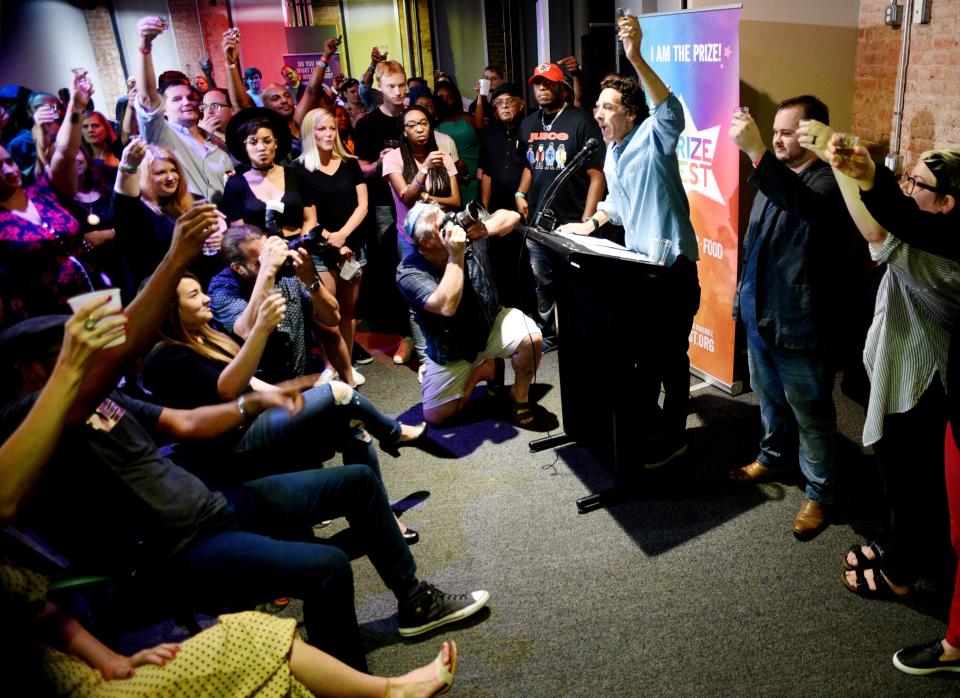
According to officials from the economic development department, the economic impact outside of the direct return of taxes to Louisiana is $6 for every $1 spent by the productions. They also estimated that the industry supports around 10,000 jobs.
While Louisiana only recoups about 22 cents for every $1 credit issued, data shows that 53% of visitors said that seeing something about the state in movies or tv is what motivated them to visit.
At this time, according to the HMC Analytics, 66% of those surveyed support the film tax credit program with 14% opposing and 20% undecided.
For more information on the tax incentives, visit the Louisiana Entertainment website.
More: Don't miss these Shreveport actors on season 3 of Disney's 'Secrets of Sulphur Springs'
The Future of Film in Shreveport
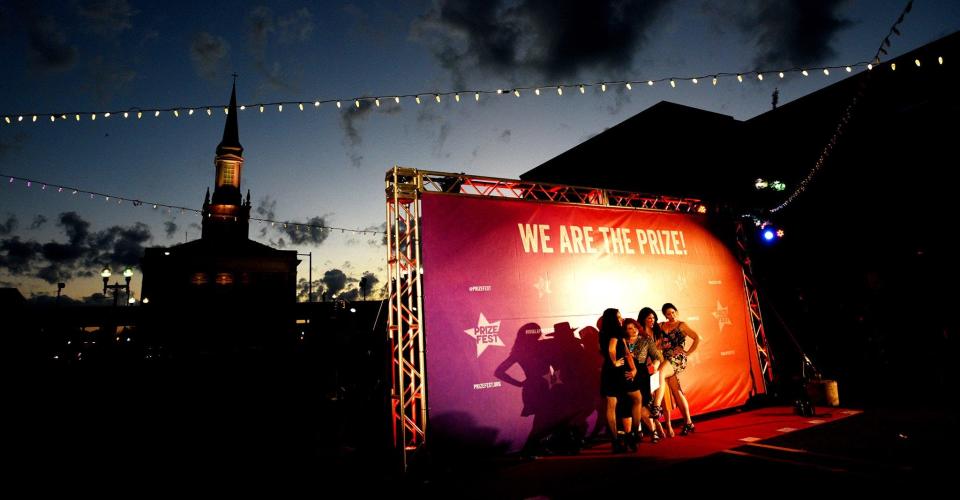
Cities like Los Angles and Atlanta carved out a place in the film industry for themselves by filling a need that wasn't being met.
Local filmmakers use Shreveport as a place to make their independent projects because of the welcoming community that already exists here.
The Robinson Film Center helps the film community in several ways including teaching kids the art of filmmaking, promoting workforce development, showcasing local films with their regional filmmaker spotlights and more.
"I think we can develop a steady and sustainable film industry here that is connected to other industries in a way that hasn't been done before," said RFC Executive Director Wendell Riley. "I don't think Shreveport needs to rival New Orleans or Atlanta or anything like that. And the ability to do it through education is I think a big part of what Shreveport needs."
Meanwhile, the Prize Foundation's annual Film Prize festival creates an incentive for filmmakers across the country to film within Caddo Parish to win a larger cash prize. Additionally, they create an inner circle for creatives to band together to make connections and work on future projects together.
"I think for Shreveport, for this region, to really embrace the film industry, we have to encourage film literacy," continued Riley. "We have to teach people how to look at a film in a much deeper level, but we also need to make them understand that the film industry is sort of an iceberg. It's the thing that everybody sees and understands, but then there's so much that goes into it."
Part of RFC's mission is to show what meaningful and sustainable careers in film look like and bring the local professionals in who are making their living in the industry in to showcase that.
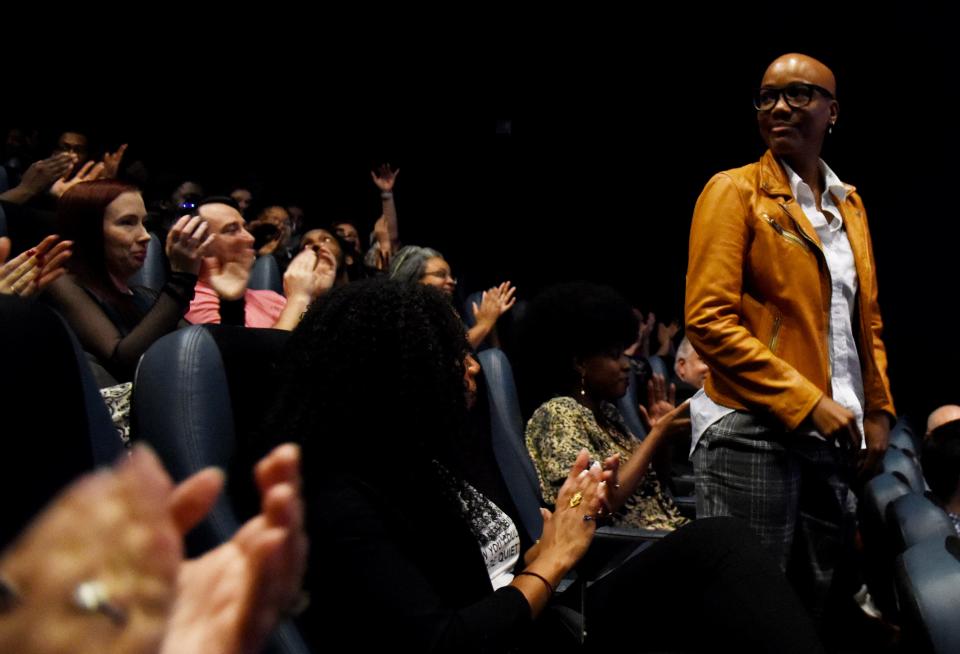
Creating more of those sustainable jobs locally is also important. Even though the old Millennium Studios is still being used, having someone like 50 Cent potentially come in to purchase it could be Shreveport's next big break.
"We encourage projects throughout the entire state because it helps to have productions everywhere - Shreveport, Alexandria, Monroe, Baton Rouge, Lafayette, Lake Charles you know that would be the ideal scenario to have five or six projects a year in each of those areas," explained Stelly.
While there's no word yet on what 50 Cent's decision about Millennium will be, for now what's most important for Shreveport is to continue to support the local indie film culture that is already blooming here.
Meredith G. White is the arts and culture reporter for the Shreveport Times. You can find her on Facebook as Meredith G. White, on Instagram and Twitter as @meredithgwhite, and email her at mgwhite@gannett.com.
Henrietta Wildsmith made contributions to this article.
This article originally appeared on Shreveport Times: A look at the economic impact of the film industry's return to Shreveport

